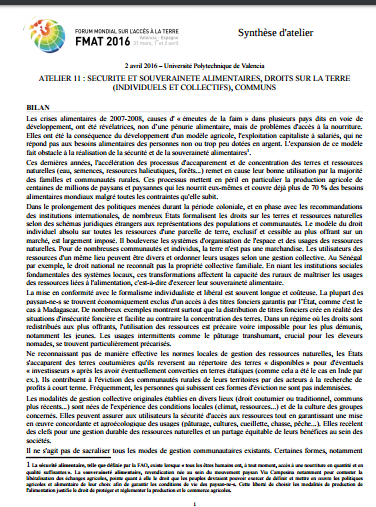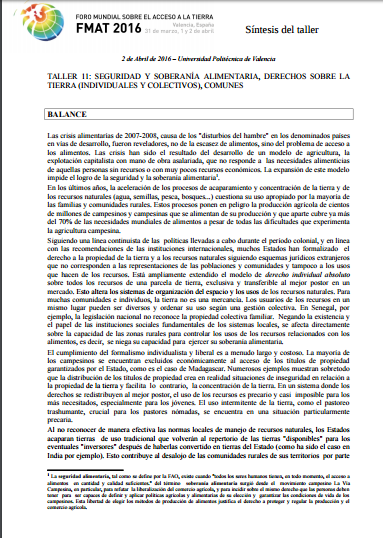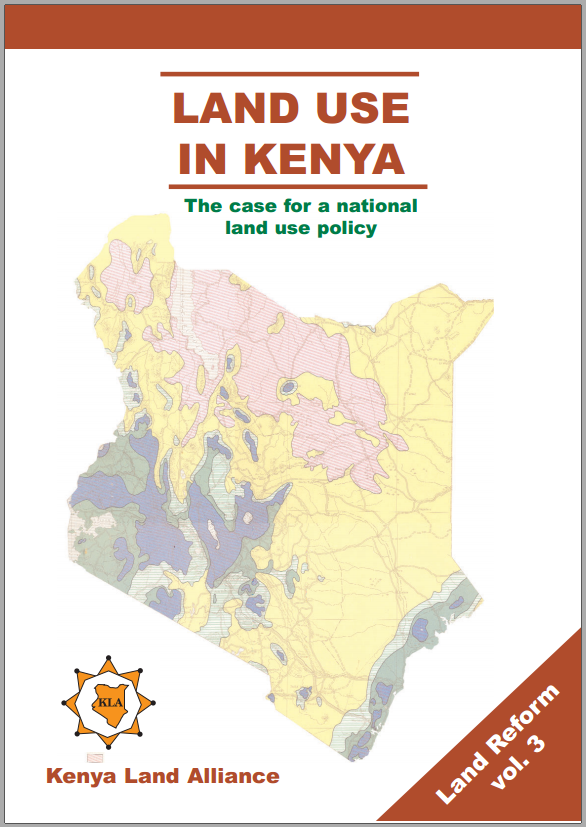WORKSHOP 11: FOOD SOVEREIGNTY AND FOOD SECURITY, RIGHTS OVER LAND (INDIVIDUAL AND COLLECTIVE), COMMONS
The food crises of 2007-2008, the cause of the “hunger riots” in several so-called developing countries, did not reveal a food shortage but problems accessing the food. These problems were the result of the development of an agricultural model, capitalist operation with workers, that does not meet the food-related needs of individuals with no or little money. The growth of this model is hindering the achievement of food sovereignty and security1.






